When the Heart Feels Heavy
Oct 29, 2025
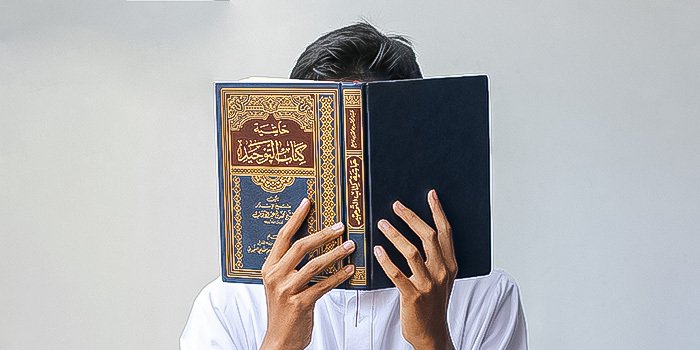
In the Name of Allah, the Most Gracious, the Most Merciful.
All praise belongs to Allah, the Lord of all worlds, and peace and blessings be upon our beloved Prophet Muhammad (صلى الله عليه وسلم), his family, his companions, and all those who follow his guidance until the Day of Judgment.

The Hadith literature represents the second most important source of Islamic guidance after the Holy Quran. These authentic narrations preserve the words, actions, and silent approvals of Prophet Muhammad (صلى الله عليه وسلم), serving as a practical manifestation of Quranic teachings and a comprehensive guide for Muslim life.
Allah Almighty declares in the Quran:
“And whatever the Messenger has given you – take; and what he has forbidden you – refrain from.” (Quran 59:7)
This verse establishes the divine authority of the Prophet’s teachings and the obligation upon believers to follow his guidance in all aspects of life.
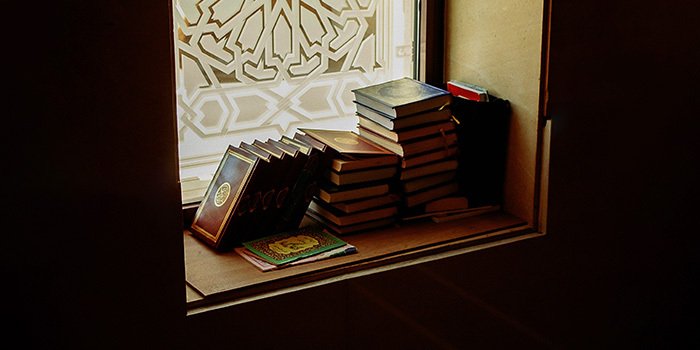
The preservation of Hadith represents one of humanity’s most remarkable achievements in historical documentation. The early Muslim community developed an unprecedented system of verification, known as the science of Hadith criticism (Ilm al-Hadith), which includes:
1. Chain of Narration (Isnad) Each Hadith comes with a complete chain of narrators, traced back to the Prophet (صلى الله عليه وسلم) himself. Scholars meticulously verified the credibility, memory, and moral character of each narrator.
2. Classification of Authenticity Hadith are classified into various categories:
3. Cross-Verification Multiple independent chains of narration for the same content provide additional verification of authenticity.
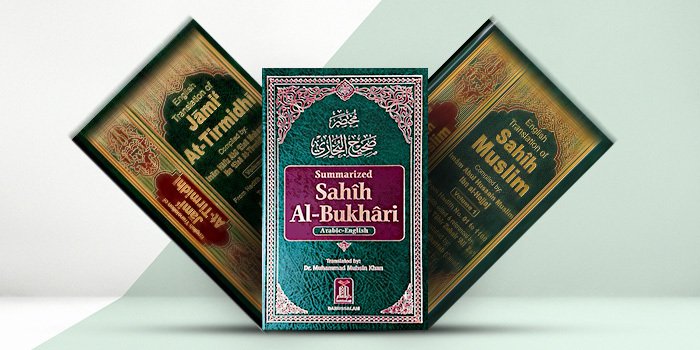
The Hadith presented in this collection are primarily drawn from:
Sahih al-Bukhari: Compiled by Imam Muhammad ibn Ismail al-Bukhari (810-870 CE), considered the most authentic collection of Hadith after the Quran.
Sahih Muslim: Compiled by Imam Muslim ibn al-Hajjaj (815-875 CE), the second most authentic Hadith collection.
Sunan at-Tirmidhi: Compiled by Imam at-Tirmidhi (824-892 CE), known for its comprehensive coverage of various topics.
These collections represent centuries of scholarly effort to preserve the authentic teachings of the Prophet (صلى الله عليه وسلم) with the highest standards of verification.
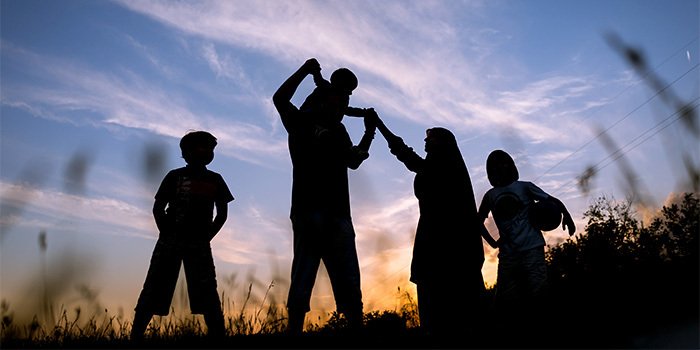
This particular collection focuses on one of Islam’s most fundamental aspects: the cultivation of mercy, compassion, and strong family and community bonds. The Prophet (صلى الله عليه وسلم) emphasized that faith is incomplete without demonstrating kindness to others, particularly to parents, family members, and neighbors.
These teachings address:
In an era marked by individualism, social fragmentation, and weakening family bonds, these prophetic teachings offer timeless wisdom for building harmonious societies. They provide practical guidance for:
عَنْ أَبِي هُرَيْرَةَ قَالَ: قَالَ رَجُلٌ: يَا رَسُولَ اللَّهِ مَنْ أَحَقُّ بِحُسْنِ صَحَابَتِي؟
قَالَ: «أُمَّكَ» . قَالَ: ثُمَّ مَنْ؟ قَالَ: «أُمَّكَ» . قَالَ: ثُمَّ مَنْ؟
قَالَ «أُمَّكَ» . قَالَ: ثُمَّ مَنْ؟ قَالَ: «أَبُوكَ». (صحیح بخاری: 5971)
Narrated Abü Hurairah A man came to Allah’s Messenger PBUHand said, “0 Allah’s Messenger! Who is more entitled to be treated with the best companionship by me?”
The Prophet ; said, “Your mother.” The man said ,”Who is next?”
The Prophet A said ,”Your mother.” The man further said,”Who is next?”
The Prophet PBUH said, “Your mother.” The man asked (for the fourth time), “Who is next?” The Prophet PBUH said, “Your father.”
……………….
وَعَنْ أَسْمَاءَ بِنْتِ أَبِي بَكْرٍ رَضِيَ اللَّهُ عَنهُ قَالَتْ: قَدِمَتْ عَلَيَّ أُمِّي وَهِيَ مُشْرِكَةٌ فِي عَهْدِ قُرَيْشٍ فَقُلْتُ
يَا رَسُولَ اللَّهِ إِنَّ أُمِّي قَدِمَتْ عَلَيَّ وَهِيَ رَاغِبَةٌ أَفَأَصِلُهَا؟ قَالَ: «نعم صِليها» . (صحیح بخاری:3183)
Narrated Asma’ bint Abu Bakr During the period of the peace treaty of Quraish with Allah’s Messenger, my mother, accompanied by her father, came to visit me, and she was a Mushrikah. I consulted Allah’s Messenger (by asking), “0 Allah’s Messenger! My mother has come to me and she desires to receive a reward from me, shall I keep good relation with her?” He said, “Yes, keep good relation with her.”
……………….
وَعَن الْمُغِيرَةِ قَالَ: قَالَ رَسُولُ اللَّهِ صَلَّى اللَّهُ عَلَيْهِ وَسَلَّمَ: «إِنَّ اللَّهَ حَرَّمَ عَلَيْكُمْ عُقُوقَ الْأُمَّهَاتِ وَوَأْدَ الْبَنَاتِ وَمَنَعَ وَهَاتِ. وَكَرِهَ لَكُمْ قِيلَ وَقَالَ وَكَثْرَةَ السُّؤَالِ وَإِضَاعَةَ الْمَالِ» . (صحیح بخاری:2408)
Narrated Al-Mugira bin Shu’ba The Prophet said, “Allah has forbidden for you (1) to be undutiful to your mothers, (2) to bury your daughters alive, (3) to not to pay the rights of the poor and others (e.g. charity) and (4) to beg of men (i.e., begging).
And Allah hates for you (1) QV and Qal (sinful and useless talk like backbiting or that you talk too much about others), (2) to ask 100 many questions, (in disputed religious matters), and (3) to waste the wealth (by extravagance with lack of wisdom and thinking) .”
……………….
وَعَنْ عَبْدِ اللَّهِ بْنِ عَمْرٍو قَالَ: قَالَ رَسُولُ اللَّهِ صَلَّى اللَّهُ عَلَيْهِ وَسَلَّمَ: «مِنَ الْكَبَائِرِ شَتْمُ الرَّجُلِ وَالِدَيْهِ» . قَالُوا: يَا رَسُولَ اللَّهِ وَهَلْ يَشْتُمُ الرَّجُلُ وَالِدَيْهِ؟ قَالَ: «نَعَمْ يَسُبُّ أَبَا الرَّجُلِ فَيَسُبُّ أَبَاهُ ويسبُّ أمه فيسب أمه» . (صحیح بخاری: 5973)
Narrated ‘Abdullah bin ‘Amr Allah’s Messenger PBUH said, “It is one of the greatest sins that a man should curse his parents.” It was asked (by the people), “0 Allah’s Messenger! How does a man curse his parents?” The Prophet PBUH said, “The man abuses the father of another man and the latter abuses the father of the former and abuses his mother.”
……………….
وَعَنِ ابْنِ عُمَرَ قَالَ: قَالَ رَسُولُ اللَّهِ صَلَّى اللَّهُ عَلَيْهِ وَسَلَّمَ: «إِنَّ مِنْ أَبَرِّ الْبِرِّ صِلَةَ الرَّجُلِ أَهْلَ وُدِّ أَبِيهِ بَعْدَ أَن يولي» . (مُسلم:2552)
Abdullah bin Umar narrated that the Prophet PBUH said: The finest act of goodness is that a person should treat kindly the loved ones of his father
………………..
وَعَنْ أَبِي هُرَيْرَةَ أَنَّ رَجُلًا قَالَ: يَا رَسُولَ اللَّهِ إِنَّ لي قَرَابةَ أصلهم ويقطعوني وَأحسن إِلَيْهِم ويسيؤون إِلَيّ وأحلم عَلَيْهِم وَيَجْهَلُونَ عَلَيَّ. فَقَالَ: «لَئِنْ كُنْتَ كَمَا قُلْتَ فَكَأَنَّمَا تُسِفُّهُمُ الْمَلَّ وَلَا يَزَالُ مَعَكَ مِنَ اللَّهِ ظَهِيرٌ عَلَيْهِمْ مَا دُمْتَ عَلَى ذَلِكَ» . (مُسلم:2558)
Abu Huraira reported that a person said:
Allah’s Messenger, I have relatives with whom I try, to have close relationship, but they sever (this relation). I treat them well, but they treat me ill. I am sweet to them but they are harsh towards me. Upon this he (the Holy Prophet) said:
If it is so as you say, then you in fact throw hot ashes (upon their faces) and there would always remain with you on behalf of Allah (an Angel to support you) who would keep you dominant over them so long as you adhere to this (path of righteousness).
……………….
وَعَنْ أَبِي هُرَيْرَةَ قَالَ: قَالَ رَسُولُ اللَّهِ صَلَّى اللَّهُ عَلَيْهِ وَسَلَّمَ: «تَعَلَّمُوا مِنْ أَنْسَابِكُمْ مَا تَصِلُونَ بِهِ أَرْحَامَكُمْ فَإِنَّ صِلَةَ الرَّحِمِ مَحَبَّةٌ فِي الْأَهْلِ مَثْرَاةٌ فِي الْمَالِ مَنْسَأَةٌ فِي الْأَثَرِ» . (التِّرْمِذِيُّ:1979)
Abu Hurairah narrated that the Messenger of Allah said:
“Learn enough about your lineage to facilitate keeping your ties of kinship. For indeed keeping the ties of kinship encourages affection among the relatives, increases the wealth, and increases the lifespan.”
……………….
عَن جَرِيرِ بْنِ عَبْدُ اللَّهِ قَالَ: قَالَ رَسُولُ اللَّهِ صَلَّى اللَّهُ عَلَيْهِ وَسَلَّمَ: «لَا يَرْحَمُ اللَّهُ مَنْ لَا يَرْحَمُ النَّاسَ» . (صحیح بخاری:7376)
Narrated Jarir bin ‘Abdullah: Allah’s Messenger said, “Allah will not be Merciful to those who are not merciful to mankind
……………….
وَعَن عائشةَ قَالَتْ: جَاءَ أَعْرَابِيٌّ إِلَى النَّبِيِّ صَلَّى اللَّهُ عَلَيْهِ وَسَلَّمَ فَقَالَ: أَتُقَبِّلُونَ الصِّبْيَانَ؟ فَمَا نُقَبِّلُهُمْ. فَقَالَ النَّبِي صلى الله عَلَيْهِ وَسلم: «أوَ أملكُ لَكَ أَنْ نَزَعَ اللَّهُ مِنْ قَلْبِكَ الرَّحْمَةَ» . (صحیح بخاری :5998)
Narrated ‘Aishah: A bedouin came to the Prophet and said, “You (people) kiss the boys! We don’t kiss them.” The Prophet said, “I cannot put mercy in your heart after Allah has taken it away from it.”
……………….
وَعَنْهَا قَالَتْ: جَاءَتْنِي امْرَأَةٌ وَمَعَهَا ابْنَتَانِ لَهَا تَسْأَلُنِي فَلَمْ تَجِدْ عِنْدِي غَيْرَ تَمْرَةٍ وَاحِدَةٍ فَأَعْطَيْتُهَا إِيَّاهَا فَقَسَمَتْهَا بَيْنَ ابْنَتَيْهَا وَلَمْ تَأْكُلْ مِنْهَا ثُمَّ قَامَتْ فَخَرَجَتْ. فَدَخَلَ النَّبِيُّ صَلَّى اللَّهُ عَلَيْهِ وَسَلَّمَ فَحَدَّثْتُهُ فَقَالَ: «مَنِ ابْتُلِيَ مِنْ هَذِهِ الْبَنَاتِ بِشَيْءٍ فَأَحْسَنَ إِلَيْهِنَّ كُنَّ لَهُ سِتْرًا مِنَ النَّارِ» . (صحیح بخاری :1418)
Narrated ‘Aishah: A lady along with her two daughters came to me asking (for some alms), but she found nothing with me except one date-fruit which I gave to her and she divided it between her two daugthers, and did not eat anything herself, and then she got up and went away.
Then the Prophet PBUH came and I informed him about this story. He said, “Whoever is put to trial by these daughters and he treats them generously (with benevolence) then these daughters will act as a shield for him from Hell-fire .”
……………….
وَعَنِ النُّعْمَانِ بْنِ بَشِيرٍ قَالَ: قَالَ رَسُولُ اللَّهِ صَلَّى اللَّهُ عَلَيْهِ وَسَلَّمَ: «تَرَى الْمُؤْمِنِينَ فِي تراحُمِهم وتوادِّهم وتعاطفِهم كمثلِ الجسدِ إِذا اشْتَكَى عضوا تَدَاعَى لَهُ سَائِرُ الْجَسَدِ بِالسَّهَرِ وَالْحُمَّى» . (صحیح بخاری :6011)
Narrated An-Nu’mãn bin Bashir: Allah’s Messenger PBUH said, “You see the believers as regards their being merciful among themselves, showing love among themselves, and being kind among themselves, resembling one body, so that, if any part of the body is not well then the whole body shares the sleeplessness (insomnia) and fever with it.”
……………….
وَعَنْ أَبِي مُوسَى عَنِ النَّبِيِّ صَلَّى اللَّهُ عَلَيْهِ وَسَلَّمَ قَالَ: «الْمُؤْمِنُ لِلْمُؤْمِنِ كَالْبُنْيَانِ يَشُدُّ بَعْضُهُ بَعْضًا» ثُمَّ شَبكَ بَين أَصَابِعه (صحیح بخاری:6026)
Narrated Abu Musa: The Prophet said, “A believer to another believer is like a building whose different parts enforce each other.” The Prophet then clasped his hands with the fingers interlaced
……………….
وَعَنْ أَنَسٍ قَالَ: قَالَ رَسُولُ اللَّهِ صَلَّى اللَّهُ عَلَيْهِ وَسَلَّمَ: «انْصُرْ أَخَاكَ ظَالِمًا أَوْ مَظْلُومًا» . فَقَالَ رَجُلٌ: يَا رَسُولَ اللَّهِ أَنْصُرُهُ مَظْلُومًا فَكَيْفَ أَنْصُرُهُ ظَالِمًا؟ قَالَ: «تَمنعهُ من الظُّلم فَذَاك نصرك إِيَّاه» . (ترمذی: 2255)
It was narrated from Anas bin Malik, that the Prophet PBUH said:
“Help your brother whether he is an oppressor or oppressed.” It was said: “O Messenger of Allah! I help him when he is oppressed. But how can I help him when he oppresses?” He said: “Prevent him from oppression, that is your help for him.”
……………….
وَعَنِ ابْنِ عُمَرَ أَنَّ رَسُولَ اللَّهِ صَلَّى اللَّهُ عَلَيْهِ وَسَلَّمَ قَالَ: «الْمُسْلِمُ أَخُو الْمُسْلِمِ لَا يَظْلِمُهُ وَلَا يُسْلِمُهُ وَمَنْ كَانَ فِي حَاجَةِ أَخِيهِ كَانَ اللَّهُ فِي حَاجَتِهِ وَمَنْ فَرَّجَ عَنْ مُسْلِمٍ كُرْبَةً فَرَّجَ اللَّهُ عَنْهُ كُرْبَةً مِنْ كُرُبَاتِ يَوْمِ الْقِيَامَةِ وَمَنْ سَتَرَ مُسْلِمًا سَتَرَهُ اللَّهُ يَوْمَ الْقِيَامَةِ» . (صحیح بخاری :2442)
Narrated ‘Abduilah bin ‘Umar: Allah’s Messenger said, “A Muslim is a brother of another Muslim, so he should not oppress him, nor should he hand him over to an oppressor. Whoever fulfilled the needs of his brother, Allah will fulfill his needs; whoever brought his (Muslim) brother out of a discomfort, Allah will bring him out of the discomforts of the Day of Resurrection, and whoever screened a Muslim, Allah will screen him on the Day of Resurrection.”
……………….
وَعَنْ أَبِي هُرَيْرَةَ قَالَ: قَالَ رَسُولِ اللَّهِ صَلَّى اللَّهُ عَلَيْهِ وَسَلَّمَ: «وَاللَّهِ لَا يُؤْمِنُ وَاللَّهِ لَا يُؤْمِنُ وَاللَّهِ لَا يُؤْمِنُ» . قِيلَ: مَنْ يَا رَسُولَ اللَّهِ؟ قَالَ: «الَّذِي لَا يَأْمَنُ جَارُهُ بَوَائِقَهُ» . (صحیح بخاری: 6016)
Narrated Abu Huraira: The Prophet. said, “By Allah, he does not believe! By Allah, he does not believe! By Allah, he does not believe!” It was said, “Who is that, 0 Allah’s Messenger?” He said, “That person whose neighbour does not feel safe from his evil.”
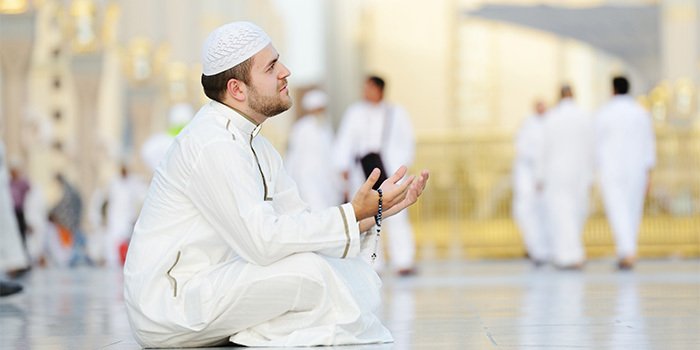
The Hadith collection presented above offers profound insights into the Prophet Muhammad’s (صلى الله عليه وسلم) comprehensive approach to human relationships. These authentic narrations demonstrate that Islam is not merely a set of rituals, but a complete way of life that prioritizes human dignity, family bonds, and social harmony.
1. The Supremacy of Maternal Rights The repeated emphasis on honoring mothers (mentioned three times before fathers) establishes the unique position of mothers in Islamic values. This teaching challenges contemporary societies to recognize and honor the sacrifices and contributions of mothers.
Practical Application:
2. Unconditional Family Loyalty The Hadith about maintaining relationships with family members who mistreat us teaches us that family bonds transcend personal grievances. This principle promotes forgiveness, patience, and long-term thinking about family relationships.
Practical Application:
3. Universal Mercy and Compassion The teachings about showing mercy to all creation, kissing children, and caring for daughters demonstrate that Islamic values extend compassion to all of humanity, with special attention to the vulnerable.
Practical Application:
4. Community Solidarity The metaphor of believers being like one body, where the pain of one part affects the whole, establishes the foundation for a caring society where individual and collective welfare are intertwined.
Practical Application:
5. Neighborly Rights The strong emphasis on neighborly rights, where a person’s faith is questioned if their neighbor feels unsafe, demonstrates Islam’s practical approach to community building.
Practical Application:

Addressing Contemporary Challenges:
1. Family Breakdown In societies experiencing high divorce rates and family fragmentation, these teachings offer a roadmap for strengthening family bonds through patience, forgiveness, and unconditional love.
2. Social Isolation The emphasis on community bonds and neighborly care provides solutions for modern problems of loneliness and social disconnection.
3. Mental Health The prophetic emphasis on emotional support, mercy, and compassion aligns with contemporary understanding of mental health and the importance of social support systems.
4. Gender Relations The special attention given to honoring mothers and treating daughters with kindness challenges patriarchal interpretations and promotes gender equity.
5. Interfaith Relations The story of treating a non-Muslim mother with kindness demonstrates Islam’s inclusive approach to human relationships beyond religious boundaries.
Personal Transformation: These teachings begin with individual character development. Each person must first cultivate mercy, patience, and compassion within themselves before extending it to others.
Family Reformation: The family unit serves as the primary laboratory for practicing these values. Strong families built on these principles become the foundation for strong communities.
Community Building: These values, when practiced collectively, create societies characterized by mutual care, social justice, and harmony.
Universal Application: While rooted in Islamic tradition, these values of mercy, family bonds, and community care are universal principles that can benefit all of humanity.
The beauty of these prophetic teachings lies in their timeless nature. They addressed the challenges of 7th-century Arabian society while remaining perfectly relevant to 21st-century global challenges. This universality stems from their focus on fundamental human needs: love, security, belonging, and dignity.

As we reflect on these profound teachings, we are called to:
The Prophet Muhammad (صلى الله عليه وسلم) said: “The believers in their mutual kindness, compassion, and sympathy are just one body; if a limb suffers, the whole body responds to it with wakefulness and fever.” This vision of interconnected humanity, bound by compassion and mutual care, offers hope for healing our fractured world.
These Hadith remind us that true success is not measured by individual achievement alone, but by our ability to create webs of care, support, and love that encompass our families, communities, and ultimately, all of humanity.
May Allah grant us the wisdom to understand these teachings, the strength to implement them, and the perseverance to maintain them throughout our lives. May these prophetic guidelines serve as a beacon of light, guiding us toward building the just, compassionate, and merciful society that Islam envisions.
والله أعلم (And Allah knows the best)